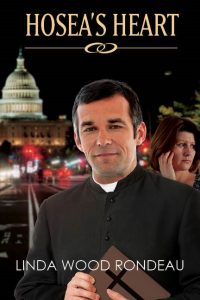Suppose you were offered a three-week stay at a comfortable hideaway to write a book. What ten things would you take? Here’s my list of essentials and why I’d need them.
1. Rules of engagement.
I’ll post these rules in a visible spot:
- Nix thoughts about problems or upcoming events. Bring a taser to punish infringements.
- Lock my cell in my car or rental. Use for emergencies only. Running out of underwear is not an emergency.
- Eat out only once a week. Fast food only.
- Forget social media exists. Check emails only twice a day.
2. My two laptops, portable printer, chargers, and a ream of paper.
-
If one laptop gets overheated, I can open my manuscript on the other from Dropbox. - I can look at research on one laptop while I type on the other.
-
Sometimes I need to have a printed version to highlight items or put check marks on. It’s a feel-good thing.
3. Hero’s Journey Outline and Description.
I use this tool to roughly plot my entire story quickly. I’ll write the story by the seat of my pants from the this outline.
4. Printed blank calendar.
- I’ll print the month sheets for the time period covered in my novel.
- Using my Hero’s Journey outline, I’ll jot story events in the calendar boxes in pencil. The calendar helps me avoid contradictory, awkward, or impossible timing of events.
- I’ll tack the sheets to the wall to easily see the layout of events as I progress my story.
5. Scrivener.
- Scrivener is my writing software. I use a fraction of its functions, but I like the ease of creating a manuscript.
- The sidebar shows me all my named scenes so I can quickly find the scene I want to check or edit.
- Getting word count for manuscript, chapters, or scenes is a snap. So is moving scenes from one chapter to another.
- I can copy research into named folders under the research folder.
6. Dictionary and Thesaurus.
- I use my Mac dashboard, Microsoft Word, and Scrivener dictionaries and thesauruses. It seems like I check every other word’s definition and hunt constantly for synonyms.
- I want my hard copies of The Merriam-Webster Dictionary (my editor uses this one) and some specialized dictionaries.
7. My writing grammar books and manuals.
I can never remember some grammar rules and style preferences, and new grammar questions arise.
8. Google and Research Notes.
I do look-ups on google for how, when, where, who, why, and what of things from pigs to names of tie knots.
9. My “Love” Playlist.
I need silence when I write. But I write romances, so sometimes I like to listen to my favorite love songs while I write those romantic scenes.
10. My editing checklist.
I have a comprehensive checklist, which will be published in my upcoming book, Tailor Your Fiction Manuscript in 30 Days. It’s designed so writers can customize the checklist to their problem areas and where they need reminders.
Bonus: A local pizza delivery telephone number.
I’m sure I’ll get tired of soups and snacks.
Ten essentials I’d take on a three-week writers retreat. Click to tweet.
What would you take on your three-week writing retreat?
Candace Parks lives a passionless life in Richmond, Virginia. The computer programmer returns to the empty family home in the Blue Ridge Mountains to evaluate her job, faith, and boyfriend. Her high school crush, star football player and prom king Trigg Alderman, is in Twisty Creek visiting his grandmother who lives next door to Candace’s family home. He doesn’t recognize her at first and remembers little about her. He’s not alone. Candace’s rekindled attraction to Trigg adds unexpected complications to finding her passions. Sorting her life out? How about nothing of the sort!












 RSS - Posts
RSS - Posts